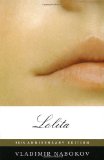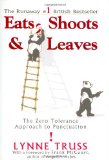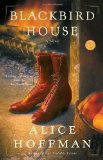 If at times Lolita is difficult to wade through, I suppose the reader can chalk that up to the narrator’s admitted psychiatric problems. This book was hard to finish on many levels. First of all, the language itself is dense and beautiful, but requires the constant attention of the reader. I was unable to simply flip through pages, and I often had to go back and re-read things I’d missed. I wish I had a footnoted copy of this book in order to translate all the French I’ve forgotten since high school, as Humbert was so fond of throwing French speech into the narrative. Second, the narrator is absolutely despicable and reprehensible. I have to say that anyone who uses the term “Lolita” to refer to a sexually-aggressive female adolescent probably has not read this book. It is clear that poor Lolita is very much a victim of Humbert Humbert — a point made clear even though it is told only through his point of view. He is an unreliable narrator. His language, his intelligence are meant to beautify his actions and evoke sympathy from the reader, and a quick glance at several Amazon reviews for this book demonstrate that many readers do fall for his story. Humbert Humbert is a creepy pedophile, even if he is gifted with language. He admits to hanging out in places where he is likely to see girls in his target “attraction range,” which is a trait common to pedophiles. He is unattracted to girls or women of any other age range.
If at times Lolita is difficult to wade through, I suppose the reader can chalk that up to the narrator’s admitted psychiatric problems. This book was hard to finish on many levels. First of all, the language itself is dense and beautiful, but requires the constant attention of the reader. I was unable to simply flip through pages, and I often had to go back and re-read things I’d missed. I wish I had a footnoted copy of this book in order to translate all the French I’ve forgotten since high school, as Humbert was so fond of throwing French speech into the narrative. Second, the narrator is absolutely despicable and reprehensible. I have to say that anyone who uses the term “Lolita” to refer to a sexually-aggressive female adolescent probably has not read this book. It is clear that poor Lolita is very much a victim of Humbert Humbert — a point made clear even though it is told only through his point of view. He is an unreliable narrator. His language, his intelligence are meant to beautify his actions and evoke sympathy from the reader, and a quick glance at several Amazon reviews for this book demonstrate that many readers do fall for his story. Humbert Humbert is a creepy pedophile, even if he is gifted with language. He admits to hanging out in places where he is likely to see girls in his target “attraction range,” which is a trait common to pedophiles. He is unattracted to girls or women of any other age range.
Interestingly, Nabokov’s allusions to Edgar Allan Poe’s work really made me see Poe in a new light — a sort of Humbert Humbert, if you will. As an American Literature teacher, I know Poe married his pubescent cousin. I always thought it was weird. After reading this novel, I see it as weird on a whole new level. Humbert excuses his lust for Lolita through allusions to other times, when grown men took child brides. I had always excused Poe’s behavior that way, but I find now that I don’t. Poe’s behavior was pedophiliac. Humbert christens his first love Annabel Leigh (a clear reference to Poe’s poem “Annabel Lee”). I do think a familiarity with Poe is helpful to readers of this novel.
I think this novel is open to both a literal and symbolic interpretation, which is one of the reasons it was stimulating intellectually. Humbert represents Europe — jaded, cynical, refined, intelligent, formal, but also corrupt. Lolita, on the other hand, represents America — young, uncouth, unrefined, naive. America raped and corrupted by the Old World. I think that it is an interesting way to look at the novel, and it works. As Nabokov emigrated to America, I have to wonder if the clash in cultures he experienced didn’t contribute to some of the ideas expressed in the novel.
I am glad I read this book. In a way, I feel like an initiate into a special literature club. It was really hard, though, and I wanted to smack the narrator constantly. He’s very clever, but he’s evil. I argue with the notion that this is an erotic novel. Humbert’s pedophilia is anything but erotic. I don’t see how readers could walk away from this book and feel that Nabokov was endorsing the idea that a grown man and a girl child can have a normal sexual relationship. In other words, Nabokov does not glamorize pedophilia or make it seem in any way romantic — quite the reverse. I am, however, no longer surprised that it is controversial — it astonishes me that Nabokov found a publisher for such fare in the 1950’s. The novel is beautifully written, and even funny in places, but ultimately, it is so sad — even Humbert eventually acknowledges that he ruined Lolita’s life. I think Lolita is a very good study of the mindset of a pedophile, and I shouldn’t be too surprised to learn that psychologists might study it for that reason.







